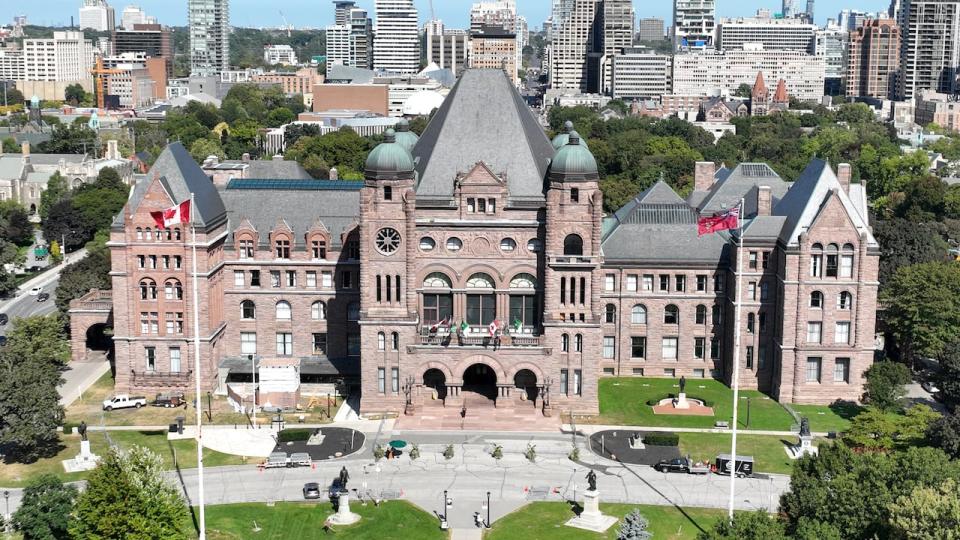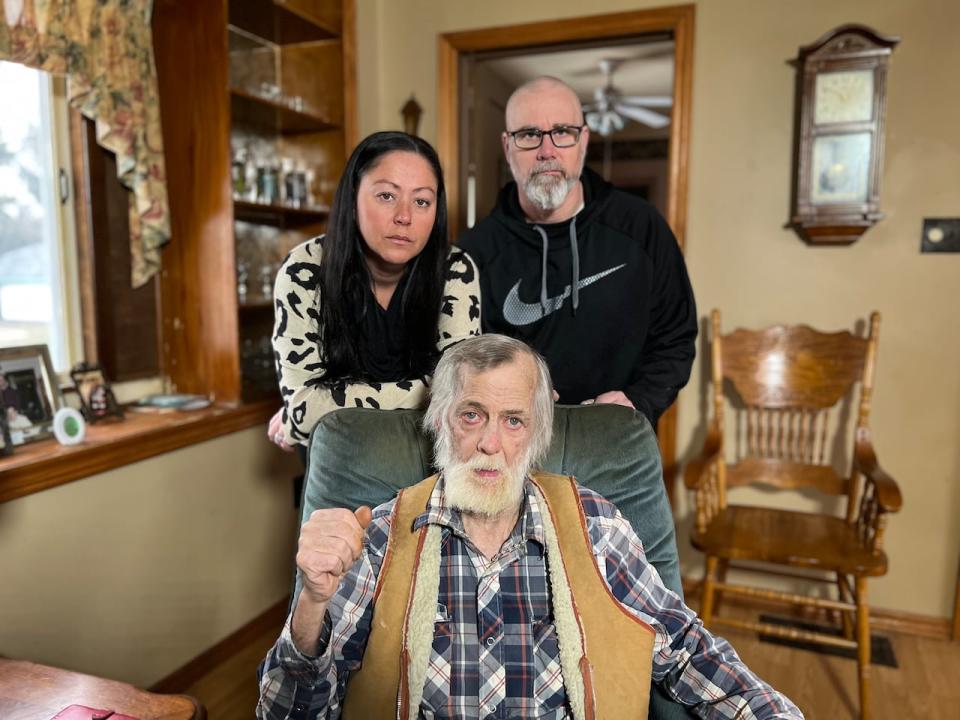New law aims to protect homeowners from predatory lending schemes

A new law that took effect in Ontario this week aims to crack down on predatory lending schemes that target homeowners, particularly seniors.
The Homeowner Protection Act, 2024, which received Royal Assent on Thursday, bans the registration of what are known as consumer Notices of Security Interest (NOSI) on land title and it deems NOSIs for consumer goods currently registered on title to be expired.
"Speaker, this is a momentous day," Todd McCarthy, minister of public and business service delivery, said in the Ontario legislature on Wednesday, when the bill passed third reading. "Great work has been done by all members of this assembly to get us to this point."
All the parties at Queen's Park came together to fast track the legislation.
"We consulted in the fall of 2023 across the spectrum, individual families, elderly citizens who had been victimized by this terrible fraud of misuse of NOSIs. The deception and organized criminal activity associated with it was unacceptable," McCarthy said.
McCarthy said the ministry talked to law enforcement, legal professionals, business owners and advocates for consumer groups and elderly people, made a proposal and then it tabled the bill.
"There are times when ideas that are matters that require our urgent attention must be dealt with swiftly. This is one such time."

A new law banning the registration of what are known as Notices of Security Interest (NOSI) on land title received Royal Assent Thursday. (John Badcock/CBC)
In a May 27 news release, McCarthy said the law is intended "to protect consumers from fraud and bad actors" who engage in harmful business practices.
"By banning the registration of consumer Notices of Security Interest on land titles, we're putting an end to the exploitation that has targeted our elderly and most vulnerable residents," McCarthy said in the release.
A NOSI is a legal tool — similar to a lien — that puts a financial claim against property titles in Ontario. They are often used by companies that finance or lease equipment such as water heaters or furnaces,to ensure payment.
"While NOSI registrations are intended to help a business protect their interest in those goods, investigations have revealed bad actors use NOSIs to extort exorbitant payments from consumers, particularly seniors. These scams can sometimes involve leveraging the NOSI, or multiple NOSIs, to secure high-interest mortgages on the property, which can ultimately lead to the homeowner losing their property," the government says.
The government said the law doesn't eliminate the security interest of a business in an item and it doesn't invalidate its contract with a consumer. If the consumer defaults on payment, the business could repossess the item and use the courts to seek repayment, the government said.
Legal aid clinic for seniors thrilled with new law
The Advocacy Centre for the Elderly (ACE), a legal aid clinic for low-income seniors in Ontario, said it is thrilled with the law, but warns that people could still be served with claims by unscrupulous companies from money owing on contracts. It says it's the underlying contracts that people have to think about. It urges people to seek legal advice if they get a claim.
"Our concern is that with the removal of NOSIs (which we are overjoyed about), financing companies are starting to take aggressive enforcement action. Since the financing companies can no longer rely on the NOSIs being paid out when the home is refinanced or sold, they have to commence litigation," Bethanie Pascutto, staff litigation lawyer for ACE, said in an email on Friday.
"Litigation is an improvement because it means that there is an impartial third party who will oversee the legitimacy of the claim. But this will only work if the homeowners defend the claim."

Melissa Irons, left, and her husband, Jeff Wagenaar, top right, and Wagenaar’s late step-father, Karl Hoffmann. (David MacIntosh/CBC)
Melissa Irons, an Ontario resident, said she is relieved that the law is in place and it brings her "tears of joy, tears of relief, tears of happiness." The situation involving her father-in-law Karl Hoffman, in which 11 liens were registered on his property by several different companies from 2017 to July 2021, adding up to thousands of dollars, cost the family financially and emotionally, she said.
"We can finally have some peace knowing that these con artists and predators aren't going to get away with what they have been trying to do," Irons said.
Irons said she has spent years fighting for provincial action. She first told the family's story to CBC Marketplace last year.
Sales people had taken advantage of Hoffman, installing equipment, doing renovations, and the family has said Hoffman didn't have the capacity to make decisions, after a brain aneurysm many years earlier.
"We're not waiting time — years, months — immediately, like today. All of those will be gone off of Karl's house," she said.
Irons said her one regret is that the law didn't come faster. Her father-in-law died in January.
"He was always quite worried and concerned that he was putting us through so much. So finally to see his stress and relief kind of gone would have been really nice to see," she said.

Greg Weedon, a real estate litigation lawyer based in Toronto, was hired by Karl Hoffman's family to fight a foreclosure notice on Karl Hoffman's home. (David MacIntosh/CBC)
Greg Weedon, lawyer for the family, said there are thousands of victims in Ontario with claims that add up to more than $1 billion. The liens are now gone retroactively. Weedon said it was usually vulnerable seniors who were targeted.
"It's been amazing. We've had countless calls from families and victims over the past 12 hours, most of them crying, thanking us and thanking the Ontario government for taking a step to protect and remedy the problem that has been caused and that has grown over the past decade or so," he said.
Weedon said the "bad actors" work quickly.
"They'll come in, they'll do, they'll replace your toilet and they'll put a $40,000 lien on title. But they're telling these victims that all these costs are all covered by government rebates and you don't have to pay anything," Weedon said.
"When it comes time to sell or refinance your home, you find out there's a $40,000 or $100,000 NOSI on title that you have no idea how it got there, and then you're left fighting with these people on the eve of a sales transaction and most of the time people just pay it out or they try to negotiate or they get stuck in litigation."
But he said the law, which he described as "a win," will have a huge impact, but said the fight against predatory lending isn't over.


